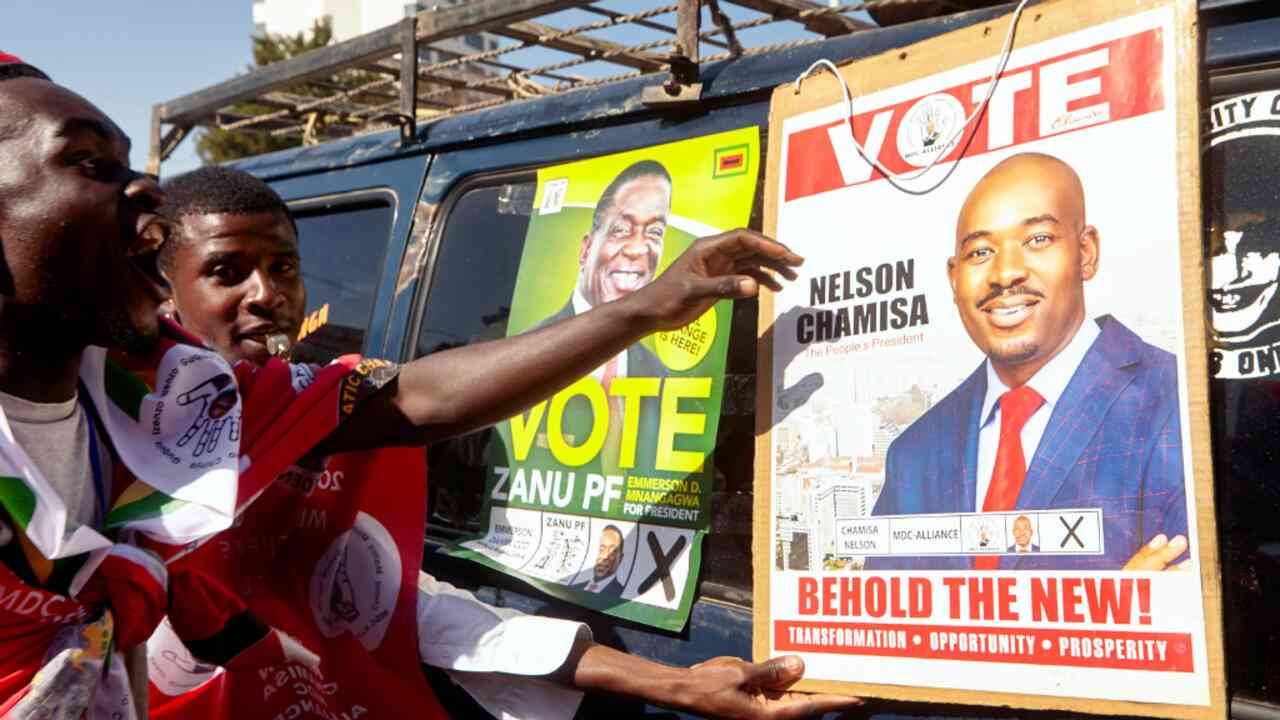
After actively listening to the Zimbabwe Human Rights Association’s (ZimRights) National Directors’ “In Conversation with Trevor”, l was moved and challenged. Moved by allusion to the toxic electoral culture across the political divide in Zimbabwe. Challenged by the need for us to find each other as Zimbabweans (duty bearers, rights holders, civic leaders, the haves, and the have nots). The conversation was not just a critique but a clarion call for introspection and action. “If the calabash is broken, do not continue to pour milk into it”, heartily bemoaned Dzikamai.
Much to the awe of Trevor, his listenership, and l, having an ahah moment. In the heart of Southern Africa, Zimbabwe’s elections have often been an assorted source of hope, despair, and fear - a sentiment captured poignantly by the metaphor of a “Broken Calabash” heartily alluded to by Dzikamai in his conversation with Trevor. This traditional vessel (Calabash), once whole, symbolizes unity and community. However, broken, it represents the shattered state of affairs - a fitting allegory for the nation’s electoral system. Now imagine, a whole Nation - State, continually pouring milk into the broken calabash.
Zimbabwe has a long, tumultuous and recurring history of contested elections. Recurring history of electoral processes, often marred by controversy, allegations of electoral fraud and changing nothing for the ordinary citizens but everything for the political actors. The metaphor of pouring milk into a broken calabash seems particularly fitting when discussing the recurring issues within the Zimbabwean electoral system. This metaphor, often used to illustrate the futility of persisting with a futile endeavor, provides a poignant commentary on the cyclical nature of electoral problems in the country. Elections, which are supposed to be a means of mass democratic participation and expression of free will are now a tick a box event - a wastage of tax payers’ money, national resources and people as Dzikamai ardently points out. In Zimbabwe, elections are a high sounding nothing whose only smokescreen is to legitimize power. Elections are now a macrocosm of a broken calabash and a broken calabash, a microcosm of elections in Zimbabwe.
Empirical and anecdotal evidence from the August 2023 elections and other past elections in Zimbabwe have shown that the far-reaching consequence of elections in Zimbabwe has been apathy. Many now believe, elections in Zimbabwe are a futile process, and a source of fear which have worsened civic apathy amongst the citizens. I concur with Dzikamai and the regional and international community which believe that the election system in Zimbabwe is broken. Just as pouring milk into a broken calabash yields no tangible results, engaging in elections in a broken electoral system without addressing underlying issues is an exercise in futility. Dzikamai rightly points out that we need to find each other as Zimbabweans and exercise meaningful electoral reform. Democracy scholars and election analysts have echoed similar sentiments, emphasizing the need for comprehensive electoral reform to address systemic challenges bedeviling the former bread basket of Africa. The metaphor of the broken calabash underscores the urgency of addressing these issues, as persisting with ineffective electoral practices only perpetuates the cycle of discontent and disillusionment among the populace.
Let’s detour a bit on how Civil Society Organizations (CSOs) have been enablers (willing or unintentional) of this toxic electoral culture. It is not a public secret that elections are now a million-dollar industry as also alluded to by Dzikamai. The only “working” industry in Zimbabwe is the elections industry. Sadly, political parties across the political divide and civil society organizations have participated in the commodification of elections. The supposed democratic process is a season of making more money and milking donor money without addressing the fundamentals and underlying systemic issues that can aid in transforming and reconfiguring the electoral landscape to be conducive for expression of the people’s will and acceptance of the same by contesting political actors.
Addressing electoral challenges in Zimbabwe requires a holistic approach that encompasses legal, institutional, and procedural reforms. Regional bodies like the Southern Africa Development Community, the African Union and the Motlanthe Commission constituted in the immediate aftermath of the August 2018 elections shootings, emphasized the need to implement substantive changes to the electoral framework, restoring trust in the democratic process, and ensuring transparency and fairness in elections in Zimbabwe.
Collective effort to mend the broken calabash, break the “perpetual election mode” and ensure that future elections reflect the will of the people and uphold the principles of democracy is urgently required. By acknowledging the limitations of the broken calabash and working towards comprehensive reform, Zimbabwe can aspire to conduct elections that are truly reflective of the will of the people and democratic aspirations of the wider citizenry.
- Phillip Nyasha Fungurai is a human rights activist, Monitoring and Evaluation Specialist and interdisciplinary researcher in the fields of human rights, peace, governance, civic participation, development management and youth development. He currently serves as the Learning and Innovation Catalyst for the Zimbabwe Human Rights Association (ZimRights).
- Why must we celebrate human rights defenders?
- ‘Drug, substance abuse among youths reflects social fabric breakdown’
- 2023 polls: Power shifts to Zimbabwe’s electorate
- Economy fuelling drug abuse: Students









